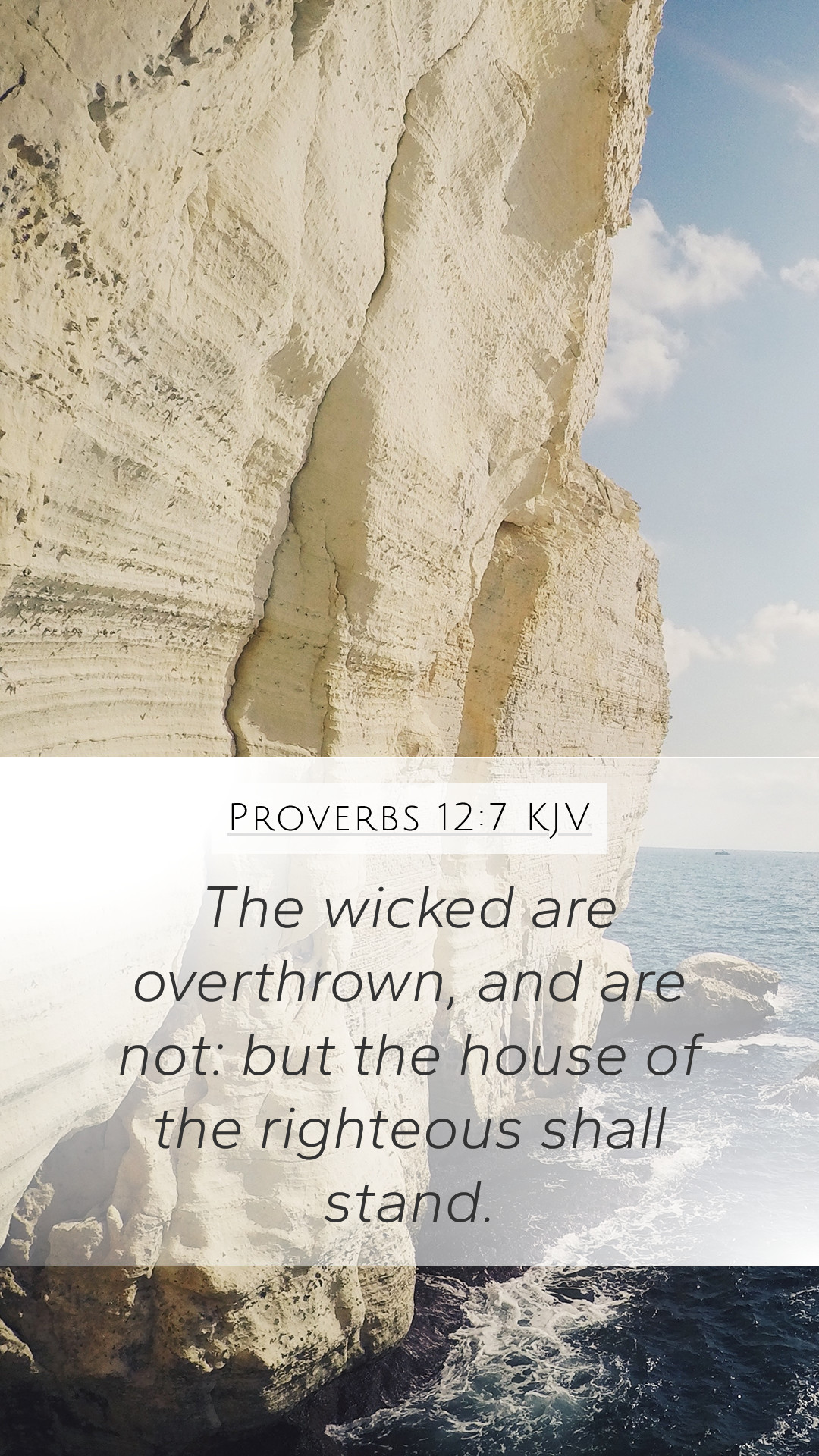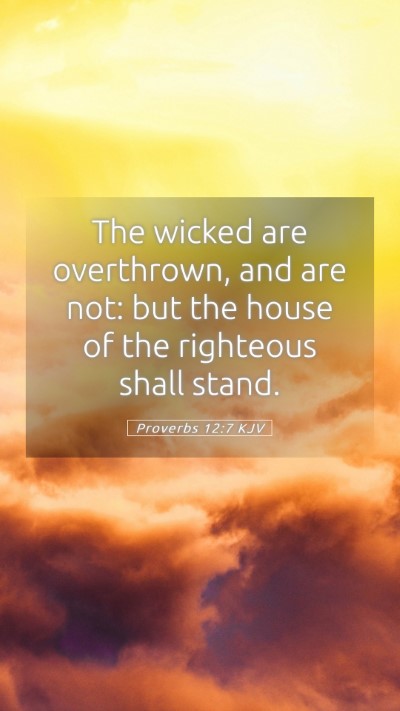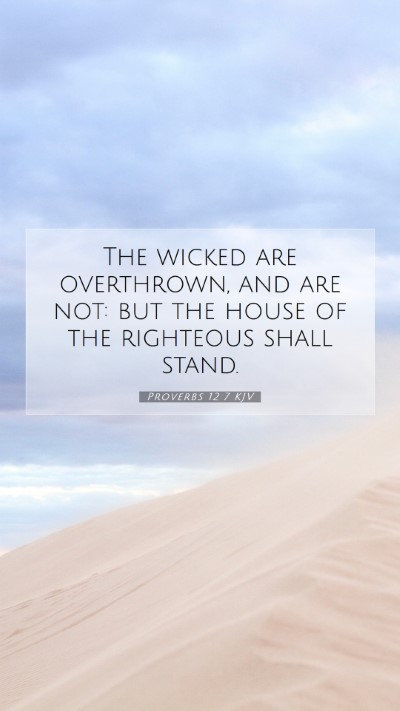Understanding Proverbs 12:7
Proverbs 12:7 states, "The wicked are overthrown and are no more, but the house of the righteous will stand." This verse encapsulates the fundamental contrast between the fate of the wicked and the righteous, underlining a recurring theme in biblical literature about the consequences of one's moral choices.
Bible Verse Meanings
This verse expresses the transient nature of wickedness and the eternal stability offered to the righteous. It serves as a form of reassurance that despite current circumstances, true righteousness bears enduring results. Public domain commentaries such as those from Matthew Henry, Albert Barnes, and Adam Clarke enrich this comprehension through various perspectives:
- Matthew Henry Commentary: Henry emphasizes that the "overthrow" of the wicked showcases the justice of God. Their sudden destruction serves not only as a consequence of their deeds but also as an illustration of divine providence, contrasting their fate with that of the righteous, whose lives are grounded in faith and obedience.
- Albert Barnes Notes: Barnes points out the metaphorical significance of "the house" representing stability and enduring legacy. He explains that the righteous are likened to a house that withstands storms and attacks, symbolizing a life built upon God's wisdom and righteousness.
- Adam Clarke's Commentary: Clarke interprets "the wicked" as those who thrive on evil, ultimately meeting their demise while the "house of the righteous" symbolizes blessed permanence. He further argues that the righteousness mentioned aligns with living in accordance with God's law, thus establishing a foundation that can withstand adversities.
Bible Verse Explanations
This verse facilitates a deeper Bible study insight into the contrasting fates of individuals based on their moral choices. The wicked symbolize those engaged in unrighteous activities who will ultimately experience destruction, while the righteous represent individuals who follow God's path and will enjoy long-lasting stability. The intent here is not just to highlight consequences but to encourage readers toward a life of righteousness.
Scripture Analysis
When analyzing Proverbs 12:7, one must consider the historical and literary context in which these proverbs were written. Delve into the significance of wisdom literature during the time of King Solomon, from whom many proverbs are attributed. Understanding this context aids in Biblical exegesis and how to interpret Bible verses within a framework that appreciates the wisdom tradition of ancient Israel.
Cross References
- Psalm 1:6: "For the Lord knows the way of the righteous, but the way of the wicked will perish."
- Proverbs 2:22: "The wicked will be cut off from the land, and the unfaithful will be torn from it."
- Proverbs 10:30: "The righteous will never be uprooted, but the wicked will not remain in the land."
- Matthew 7:26-27: "But everyone who hears these words of mine and does not put them into practice is like a foolish man who built his house on sand..."
Application of Proverbs 12:7
For those exploring Bible study topics, Proverbs 12:7 offers rich ground for discussion on the lasting impact of righteousness and the fleeting nature of wickedness. Consider how one can apply this verse to their daily lives, reinforcing the importance of living righteously and seeking God's guidance in decision-making. Reflecting on this can lead to more profound insights during online Bible study or in Bible study groups.
Conclusion
In summary, Proverbs 12:7 teaches that while evil may seem temporarily prosperous, its ultimate end is destruction. Conversely, those who live righteously, grounded in faith and obedience to God, will find their lives and legacies secure. This understanding serves as a crucial reminder for personal conduct and an encouragement for continuous reflection on the meaning of Bible verses in the believer's life.


